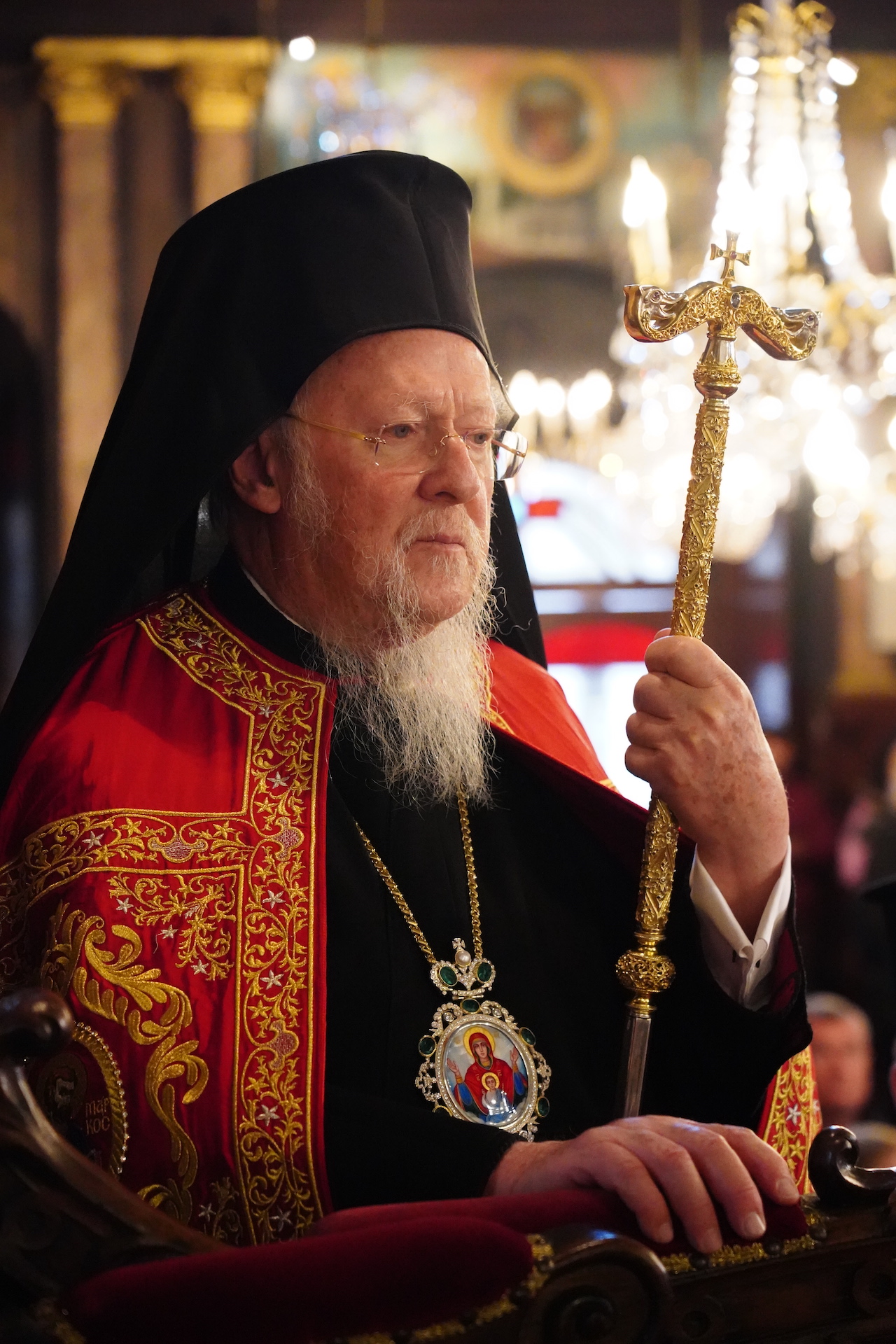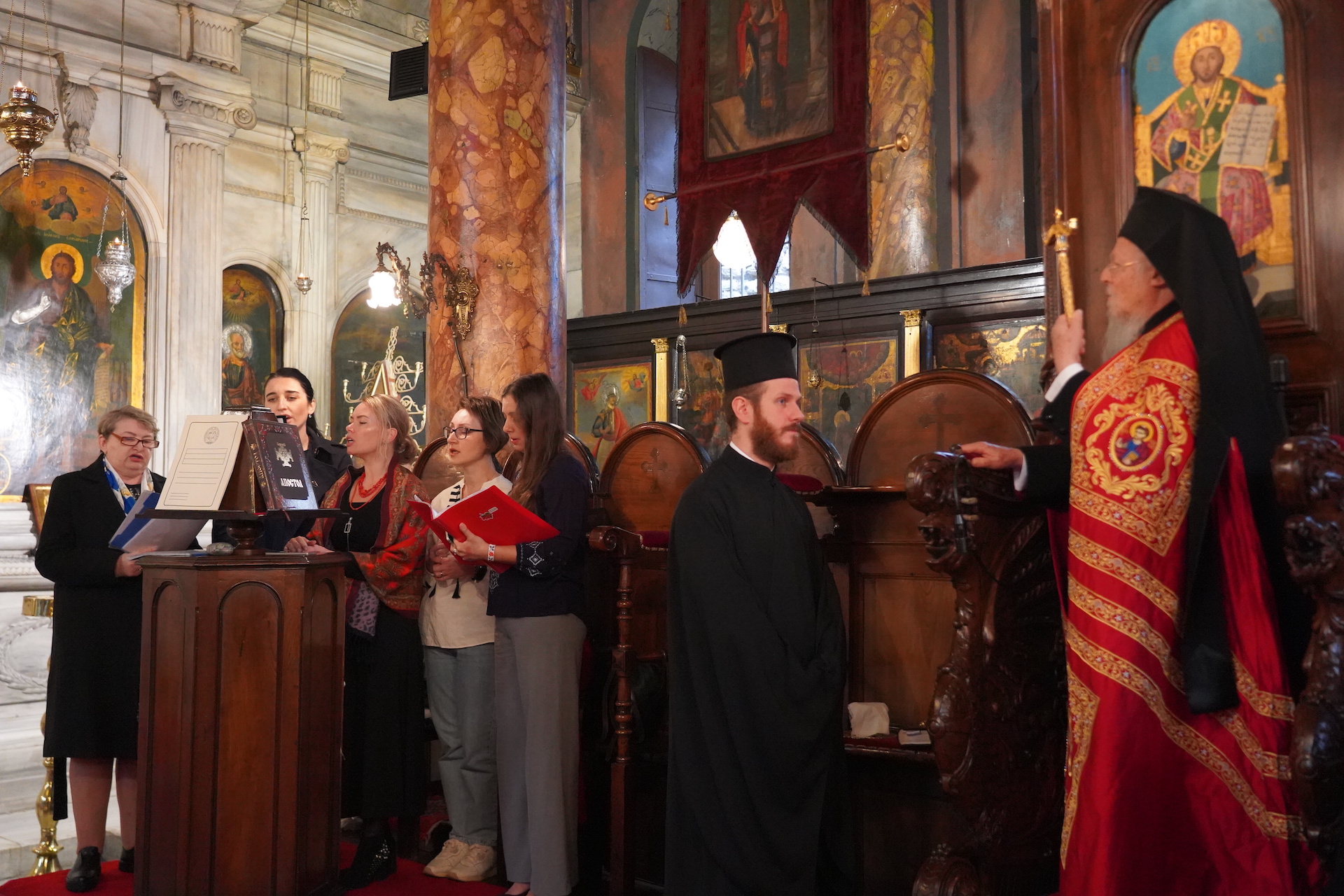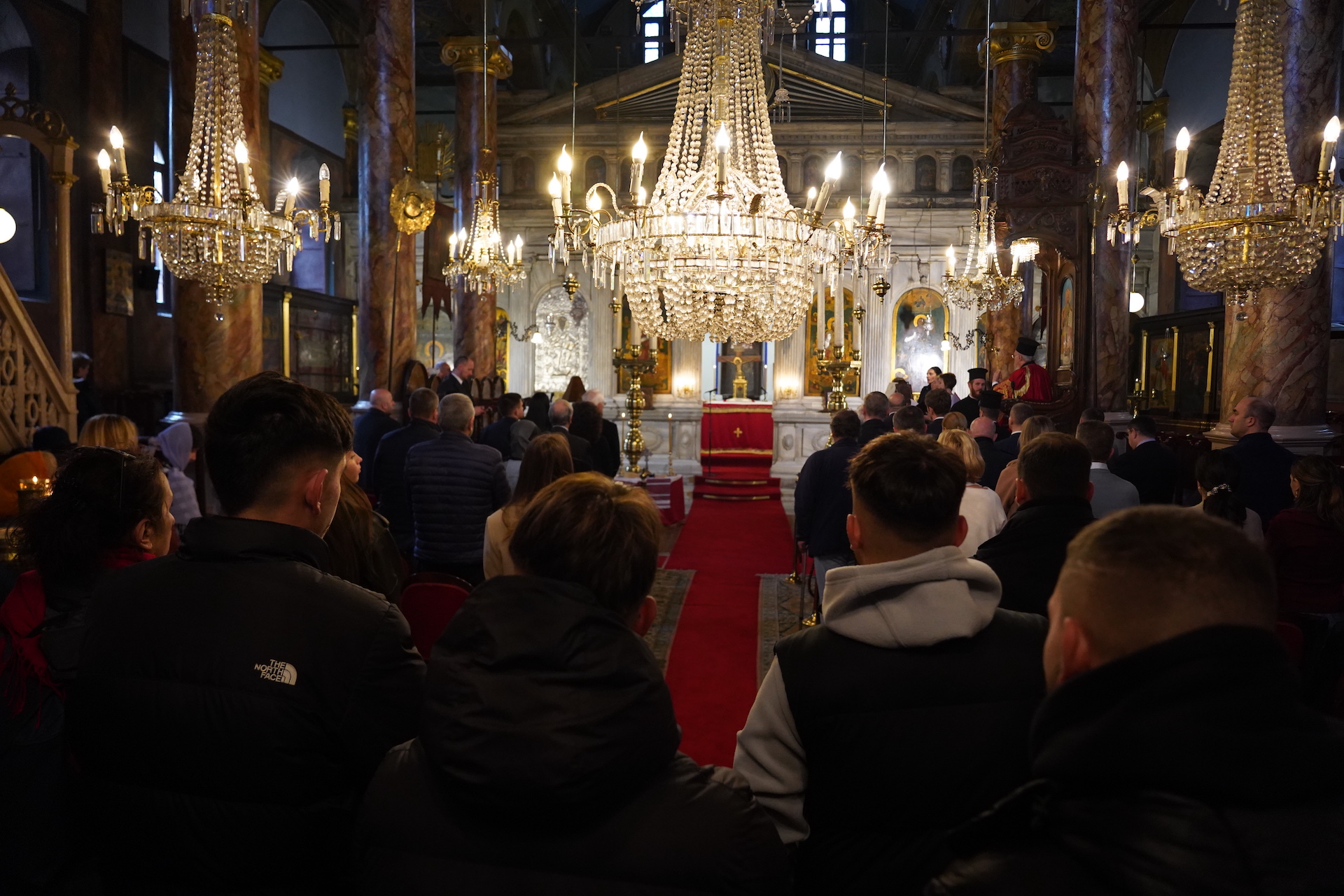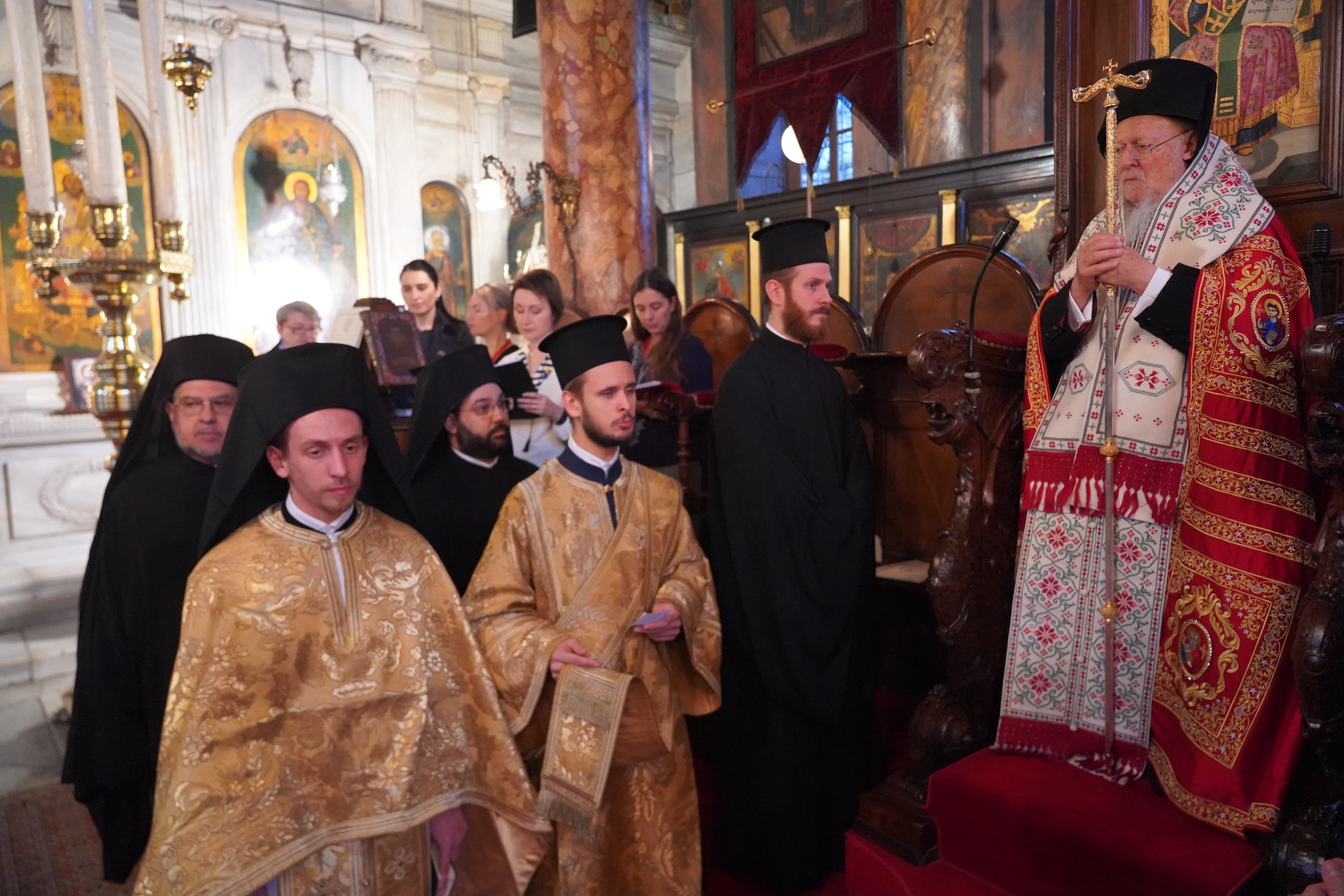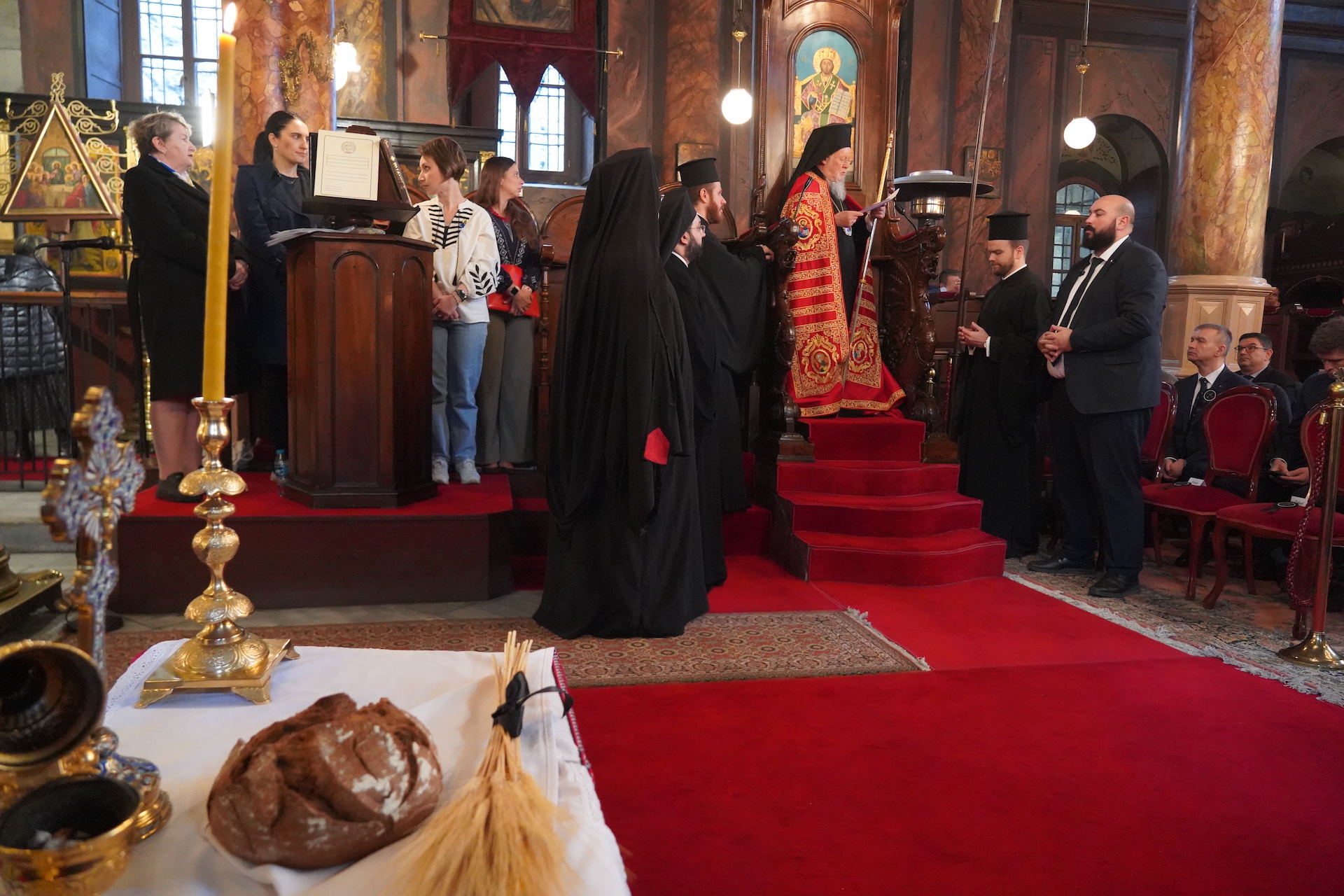Ecumenical Patriarch Bartholomew on the Holodomor: “A dark chapter of human history”


His All-Holiness Ecumenical Patriarch Bartholomew expressed the wish for everyone’s efforts to be dedicated to the creation of a world where justice, compassion, and the sanctity of life will be protected as sacred values, after the Divine Liturgy, which he presided over on Sunday, 26 November 2023, at the Church of St. Nicholas in Tzivali, at the end of which a memorial service was held for the victims of the “Holodomor” [1932-1933], the resulting famine in Ukraine, during which millions of people died of hunger, as well as for the victims of the ongoing war in that country.
In particular, the Ecumenical Patriarch, addressing the congregation, and especially the members of the Ukrainian Community, referred to the tragedy of the Holodomor, which, as he said, was planned and imposed by the atheist and totalitarian Stalinist regime to force the devout Ukrainians to submit to the Soviet idea.
“This dark chapter in human history, recognised as a genocide by many sovereign states, stands as a testament to the depths of human suffering inflicted upon the Ukrainian people. The very essence of this catastrophe lies not only in the scarcity of food but in the deliberate actions taken by the Soviets to suppress the spirit of the Ukrainian nation by confiscating their essential means of survival. The oppression used to subdue a people and the denial of their fundamental human rights are affronts to the divine image imprinted upon every soul. The Holodomor was not merely an economic or political calamity; it was a profound moral and spiritual tribulation that tested the endurance of the Ukrainian people and their right to exist.”
The Ecumenical Patriarch added that such acts of hatred and discrimination call on us to stand in solidarity with those who have endured unimaginable hardships, recognising our shared responsibility for the well-being of humanity, and pointed out that as a Church, “we must actively seek justice, offer compassion to those suffering, and strive for a world where the rights and dignity of every human being are safeguarded. May our collective efforts be guided by the principles of love, reconciliation, and a steadfast commitment to upholding the sanctity of life.”
Concluding his speech, he reiterated the support of the Ecumenical Patriarchate to the Ukrainian people who are suffering from the war unleashed by the Russian Federation against their homeland. He also hoped that similar tragedies like the Holodomor will never be repeated again, which, as he said, should inspire us “to be vigilant guardians of human dignity, advocates for justice, and beacons of hope for a world where the inherent worth of every person is recognised and respected”.
The Consul General of Ukraine in Constantinople, Roman Nedilskyi, also gave a short speech.
His Grace Bishop Hadrian of Halicarnassus, Supervisor of the Phanar – Golden Horn District, attended the service. Also present were Ambassador Mr. Dimitrios Rallis, Deputy Secretary General of the Black Sea Economic Cooperation, the Consuls General of Belgium Mr. Tim Van Anderlecht, and of the Netherlands Mr.Arjen Uijterlinde, of Germany Mr. Johannes Regenbrecht, and of Poland Mr. Witold Leśniak, the head of the Consulate General of Romania Mr. Lucian Petrisor Cringasu, and the Consuls of Georgia, Mr. Zaza Nadiradze and of Bulgaria Ms. Radoslava Kafedzhiyska, as well as the Consul of Ireland Mr. James Geary, but also many believers from the Ukrainian Community and the Greek Diaspora of Constantinople, as well as pilgrims from Greece.
Read below the speech of the Ecumenical Patriarch:
Dear Brother Bishop Hadrian,
Reverend clergy,
Your Excellency,
Honourable Consuls General,
Esteemed community leaders,
Beloved brothers and sisters,
According to custom, we solemnly gather on the last weekend of November to commemorate the millions of victims who died during the artificial famine known as the Holodomor, which occurred between 1932 and 1933 in areas primarily populated by ethnic Ukrainians. This period of death by forced starvation, imposed by the atheist and totalitarian Stalinist regime, pushed innocent beings to their limits and left long-lasting devastation in the region, leaving scars to this day. What made this tragedy even more profound is that it occurred when there was record agricultural production; however, it was designed to force God-fearing Ukrainians into submission to the Soviet idea.
This dark chapter in human history, recognized as a genocide by many sovereign states, stands as a testament to the depths of human suffering inflicted upon the Ukrainian people. The very essence of this catastrophe lies not only in the scarcity of food but in the deliberate actions taken by the Soviets to suppress the spirit of the Ukrainian nation by confiscating their essential means of survival. The oppression used to subdue a people and the denial of their fundamental human rights are affronts to the divine image imprinted upon every soul.
The Holodomor was not merely an economic or political calamity; it was a profound moral and spiritual tribulation that tested the endurance of the Ukrainian people and their right to exist. While individuals weren’t allowed to escape to find nourishment, families were torn apart, communities shattered, and the cries of the hungry echoed through the land. All these historical facts remind us of the sacred duty we must protect, so we may continue to cherish the gift of life.
For this reason, such acts of hate and discrimination challenge us to confront the darkness that can arise when humanity loses sight of its moral compass. They beckon us to stand in solidarity with those who have endured unimaginable hardships, recognizing our shared responsibility for the well-being of all members of our human family.
For this reason, the Holy and Great Council of the Orthodox Church (Crete, 2016) reminded everyone of our commitment to peace, justice, and the dignity of every human person, standing in solidarity with those who have undergone the horrors of such wrongs. We are called to remember that, as a Church, we must actively seek justice, offer compassion to those suffering, and strive for a world where the rights and dignity of every human being are safeguarded. May our collective efforts be guided by the principles of love, reconciliation, and a steadfast commitment to upholding the sanctity of life.
Esteemed guests, dear brothers and sisters,
Despite all the armed conflicts and instability throughout the world, we still stand together with our Ukrainian brethren as they continue to face the Russian Federation’s ongoing onslaught against their homeland in the areas where many lost their lives during the Great Famine. We are reminded by the Psalmist to “Defend the weak and the fatherless; [to] uphold the cause of the poor and the oppressed. [To] rescue the weak and the needy; [and to] deliver them from the hand of the wicked.” (Psalm 82:3-4).
In our prayers, in reminding the world of this atrocity, we remember the souls of those who perished and pray for the healing of the wounds that persist in the hearts and minds of their descendants. May our collective efforts be dedicated to fostering a world where justice, compassion, and the sanctity of life are upheld as sacred values.
As we navigate the complexities of history, let us draw strength from our faith to move toward a future where such tragedies are never repeated. May the lessons of the Holodomor inspire us to be vigilant guardians of human dignity, advocates for justice, and beacons of hope for a world where the inherent worth of every person is recognized and respected.
May God be with you all!
May their memories be eternal!
Photos: Nikos Papachristou / Ecumenical Patriarchate
Source: fosfanariou.gr

